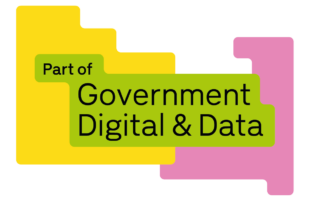 Stock image of a professional mapping out their career progression
Stock image of a professional mapping out their career progression
My path to Senior Civil Service (SCS) has not been linear. I had my first opportunity to progress to the SCS back in 2015 shortly after I joined government from a policy consultancy. However, I decided not to take it up.
Instead, I took the opportunity to refocus my career, leaving the policy profession to retrain as a digital, data, and technology professional. By then, I had a better understanding of what got me up every morning, and while I was a good policy professional, that wasn’t it.
This year, I took up a permanent SCS role in my chosen profession as Chief Engagement and Design Officer. While it has taken me a while to get here, I am now in a role I really enjoy. This journey has taught me a lot, so I thought I would share the lessons I learned through the Senior Civil Service recruitment process.
Lesson 1: Progression is not just about climbing the ladder
Culturally, we recognise, celebrate, and look up to those who are promoted. This can lead us to seek out the first opportunity to climb the ladder, regardless of whether it’s the right choice for the long term. As a result, we have all experienced leaders who were not in the right role and felt the subsequent impact this had on the wider team. I think it’s important we reframe progression to be about finding the path that’s right for each of us.
If you love doing your craft, then a senior role may not be for you. That doesn’t mean you are less ambitious or capable. I am proud that the digital data and technology profession in government recognises this. Several departments, including the Department for International Trade (DIT), have delegated pay frameworks and heads of profession. Our teams can be rewarded for proficiency in their role rather than just for their grade.
I am lucky to work with a team who are all experts in their field. I am a firm believer that multidisciplinary teams perform better, and together we can have a stronger impact on society.
Lesson 2: Take the time to understand the expectations of the role
If you have decided that a promotion is the right for you, take some time to understand the expectations of the role. As a SCS, it’s about more than delivering excellence in your field. You are there to contribute to the leadership of government. You will need to:
- understand the wider context of government
- have experience working across organisations and functions
- lead and manage diverse and inclusive teams
The interview process for SCS is also different, often including staff engagement exercises and psychometric tests. Take time to reflect on the SCS competency framework. Learn how to be successful at interviews and build your experience through your role or corporate contributions. This will come across in the application process.
Lesson 3: Figure out what makes you stand out from the crowd
The reality is that the more you progress, the more competitive the roles become. There are simply going to be fewer roles available the higher you aim in the civil service. Additionally, the core skills required for SCS roles include general competencies such as leadership, management, and strategy development. Your personal suitability for the role becomes key in distinguishing yourself from candidates who can also demonstrate relevant skills and experience.
You need to figure out what makes you stand out from the crowd and articulate to the interview panel why you are the right person for the role at that point in time. My background in policy meant that I had a good understanding of how to design services, collaborating with policy colleagues and working across departments. I knew this was going to be really beneficial to the journey we are on at DIT so I made sure that this came across clearly.
Lesson 4: It’s a marathon, not a sprint. Don’t be disheartened and keep going
We are each on our own path, and your search for the right role may take more or less time than those around you. Whilst your professional experience is important, it also depends on the roles available when you start looking, your suitability at that point in time, and the competition.
As I mentioned, I had my first opportunity for a promotion into SCS 6 years ago. Deep down I knew that career trajectory wasn’t right for me. I won’t pretend I didn’t have doubts along the way as I retrained and saw colleagues gain their promotions. But I am much happier today and confident with the experience and knowledge I can bring to DIT and our users.
When I think I will likely be working for another 30 years, I am glad I didn’t rush it. So, make sure you use the opportunity of failed applications to reflect on your interests, what you can uniquely bring to a role, as well as your experience and skills. It is a learning journey, so don’t be disheartened, stay resilient and keep going!
Find out more about career progression in our blog on how to get promoted in the Civil Service
Enjoyed this careers blog? Check out our latest jobs on DDaT’s careers page

